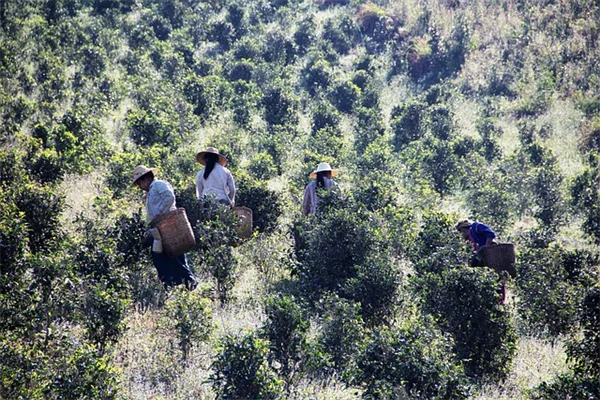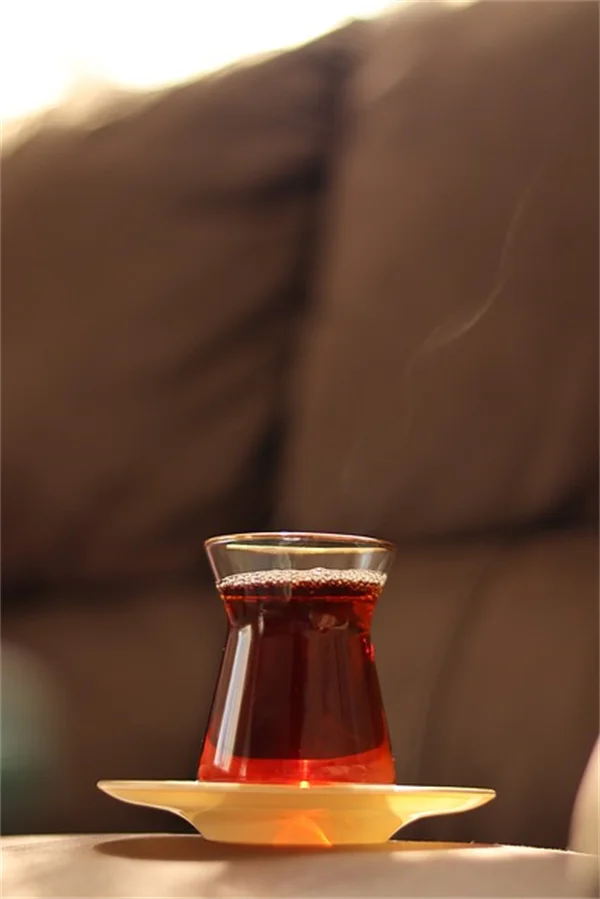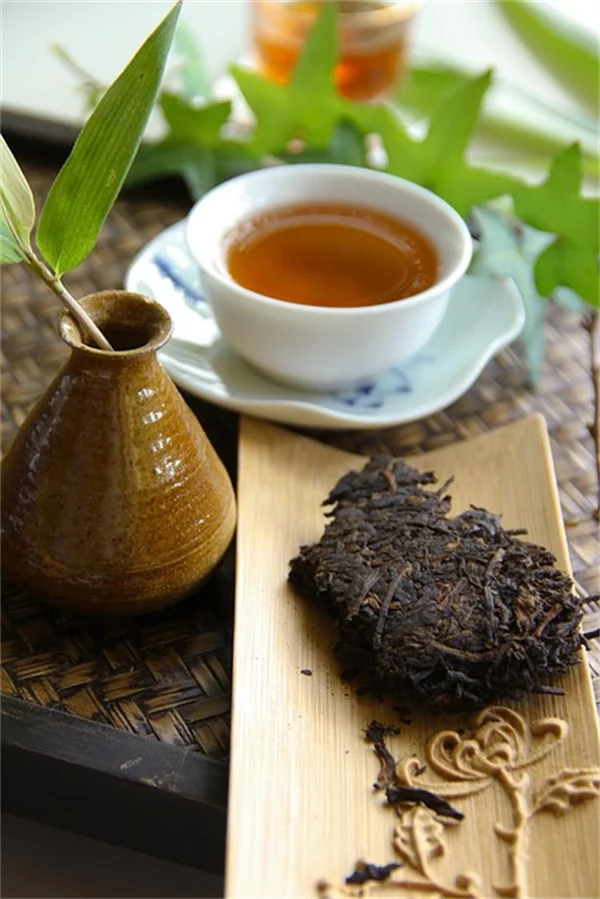Alcohol and Blood Pressure: 5 Surprising Facts About Moderate Drinking Risks
Advertisement
Does alcohol raise blood pressure even if you drink moderately? The answer is a clear yes - and here's why that matters for your health. We used to think that just one drink was harmless, but new research analyzing 19,548 people across three countries shows even light drinking increases systolic blood pressure by 1.5 mmHg. That might not sound like much, but it's like adding constant stress to your heart 24/7. As an emergency physician, I've seen firsthand how patients are shocked when their social drinking habit shows up in elevated numbers. The truth? There's no safe amount of alcohol for blood pressure - but the good news is small changes can make big differences. Let me walk you through what this means for your health and lifestyle.
E.g. :Olive Oil for Dementia Prevention: 28% Lower Risk Revealed
- 1、That "Just One Drink" Habit? Here's What It's Doing to Your Blood Pressure
- 2、Why Your Heart Doesn't Love Happy Hour
- 3、Alcohol and Medications - A Dangerous Mix
- 4、Making Smarter Choices Without Missing Out
- 5、What the Experts Want You to Know
- 6、The Hidden Costs of That Nightcap
- 7、Alcohol's Sneaky Impact on Your Workout
- 8、The Social Pressure Cooker
- 9、Delicious Alternatives You Haven't Tried
- 10、Tracking Your Progress
- 11、FAQs
That "Just One Drink" Habit? Here's What It's Doing to Your Blood Pressure
Surprising Findings About Casual Drinking
You know that friend who says "I only have one drink per day - that's healthy, right?" Well, new research shows even that moderate habit makes your blood pressure creep up. We're talking about 19,548 people across three countries in this study - that's like the entire population of Salt Lake City!
Here's the kicker: Your systolic blood pressure (that top number) rises by about 1.5 mmHg with just one daily drink. To put that in perspective, that's like carrying around an extra 10-pound backpack all day, every day. The study looked at data going back to 1977 - that's older than my first pair of bell-bottom jeans!
What Counts as "One Drink" Anyway?
Ever notice how your "one glass of wine" at a restaurant could actually be two standard drinks? Here's a reality check:
| Drink Type | US Standard (14g alcohol) | What You Often Get |
|---|---|---|
| Beer | 12 oz (5% ABV) | 16 oz pint (6.5% ABV craft beer) |
| Wine | 5 oz (12% ABV) | 8-10 oz restaurant pour |
| Liquor | 1.5 oz (40% ABV) | 2.5 oz "generous" pour |
As Dr. Whelton from Tulane University jokes, "In New Orleans, if you got a true standard drink, you'd think the bartender was being cheap!" This makes tracking your actual intake trickier than solving a Rubik's cube blindfolded.
Why Your Heart Doesn't Love Happy Hour
 Photos provided by pixabay
Photos provided by pixabay
The Blood Pressure Domino Effect
Here's something that might surprise you: Three drinks per week - what most would call "barely drinking" - can start affecting your numbers. Dr. Chakravarthy explains it like this: "Imagine your blood vessels are garden hoses. Alcohol tightens the nozzle, forcing your heart to pump harder."
And it's not just about your heart. Elevated blood pressure is like that annoying relative who shows up uninvited and causes problems everywhere - increasing risks for stroke, kidney disease, and vision issues. The scary part? You might not feel any symptoms until damage is done.
Rethinking the "Heart-Healthy" Alcohol Myth
Remember when we thought red wine was good for your heart? Turns out that was about as accurate as the "food pyramid" from our school cafeterias. Dr. Dua puts it bluntly: "In the past 18 months, we've realized any alcohol isn't heart-healthy."
But here's a question worth asking: Why did we ever think alcohol could be healthy? The answer takes us back to flawed studies from the 1980s that didn't account for other lifestyle factors. It's like crediting your morning coffee for weight loss when you're actually skipping breakfast!
Alcohol and Medications - A Dangerous Mix
When Your Cocktail Meets Your Prescriptions
Picture this: You're taking blood pressure meds but still enjoying your evening martini. Dr. Dasgupta warns this combo can be like mixing bleach and ammonia - technically they both clean, but together they create toxic fumes.
Real talk: Alcohol can either dilute your medication's effectiveness or amplify side effects. Either way, you're not getting the protection you paid for (literally, those meds aren't cheap!). Always tell your doctor about your drinking habits - they're not there to judge, just to keep you safe.
 Photos provided by pixabay
Photos provided by pixabay
The Blood Pressure Domino Effect
Here's something most people don't realize: Alcohol makes you pee more (we've all been there), which dehydrates you. Dehydration causes blood vessels to constrict, which... you guessed it, raises blood pressure! It's like your body's playing a cruel practical joke on you.
Making Smarter Choices Without Missing Out
Socializing Without the Spirits
Think you can't have fun without alcohol? Tell that to the booming mocktail industry! Dr. Chakravarthy notes: "More events now offer creative alcohol-free options that let you participate without pressure."
Try this at your next gathering:
- Sparkling water with lime (looks like a gin & tonic)
- Virgin bloody Mary (all the spice without the vodka)
- Fancy herbal tea in a wine glass (seriously, it works!)
The 30-Day Experiment That Could Change Everything
Here's a challenge: Go alcohol-free for one month and track your blood pressure. Many patients report drops of 5-10 mmHg - that's like removing a whole salt shaker from your diet! You might discover:
- Better sleep (no more 3am wake-ups)
- More energy (goodbye, afternoon slump)
- Extra cash (that $15 cocktail habit adds up!)
Pro tip: Replace the ritual, not just the drink. If you unwind with wine, try warm cinnamon tea in your favorite glass. Your brain gets the comfort without the consequences.
What the Experts Want You to Know
 Photos provided by pixabay
Photos provided by pixabay
The Blood Pressure Domino Effect
Let's be real - complete abstinence isn't realistic for everyone. But here's an eye-opener: Cutting back by just 2 drinks per week can make a measurable difference. Think of it like turning down the volume on your blood pressure instead of hitting mute.
And another question people rarely ask: Why do we focus so much on alcohol when other factors matter too? The truth is, while diet and exercise get most attention, alcohol is the stealth factor we often overlook - like forgetting to factor in that "small" frappuccino when counting calories.
Your Personalized Pressure Plan
Your ideal approach depends on your starting point. Here's a quick guide:
| Current Habit | First Step | Realistic Goal |
|---|---|---|
| Daily drinker | Start with 2 alcohol-free days | Reduce to 3-4 drinks weekly |
| Weekend drinker | Alternate alcoholic/non-alcoholic | Cut portions by half |
| Special occasions only | Track actual consumption | Set drink maximums |
Remember, small changes create big results over time. As Dr. Whelton says, "The best drink for your blood pressure is the one you don't have." But if you do indulge, make it count - savor that expensive bourbon instead of mindlessly chugging cheap beer.
The Hidden Costs of That Nightcap
Sleep Quality Takes a Hit
You might think that nightcap helps you sleep, but here's the twist - alcohol actually wrecks your sleep architecture. While it may help you fall asleep faster (we've all been there after one too many), it significantly reduces REM sleep - that crucial stage where your brain processes emotions and memories.
Think about your last hangover morning. Didn't you feel exhausted despite sleeping for hours? That's because alcohol turns your night into what sleep researchers call "fake sleep" - it looks like rest, but your brain isn't getting the recovery it needs. Fun fact: Just two drinks before bed can reduce your REM sleep by 40% - that's like cutting out the most important chapter of a book!
The Morning After Effect
Ever notice how you crave salty foods after drinking? There's science behind those 3am nacho runs. Alcohol causes dehydration, which triggers your body to conserve sodium - hence the blood pressure spike the next day.
Here's a personal experiment you can try: Check your blood pressure the morning after drinking versus a sober night. You'll likely see a 5-10 mmHg difference - enough to push some people into prehypertension territory without realizing it. Pro tip: If you do drink, alternate each alcoholic beverage with a glass of water to minimize this effect.
Alcohol's Sneaky Impact on Your Workout
Recovery Roadblocks
That post-workout beer might be tradition, but it's sabotaging your gains. Alcohol interferes with protein synthesis - the process your muscles use to repair and grow after exercise. Studies show that drinking after resistance training can reduce muscle growth by up to 37%!
Picture this: You just crushed an intense workout, feeling proud of those extra reps. Then you celebrate with drinks, effectively erasing nearly 40% of your hard work. Ouch. As my gym buddy likes to say, "You can't out-train your liver!"
The Hydration Equation
Here's something most weekend warriors don't consider - alcohol is a diuretic, meaning it makes you lose more fluid than you take in. For every standard drink, your body can lose up to 4 times that amount in water.
Let's do some math: Three margaritas could put you 36 ounces in the hydration hole before you even account for sweat loss from exercise. No wonder your Sunday long run feels so brutal after Saturday night drinks! Solution: If you're training for an event, consider limiting alcohol during peak weeks - your performance (and blood pressure) will thank you.
The Social Pressure Cooker
Navigating Drinking Culture
"Come on, just one more!" - how many times have you heard that? The truth is, social pressure to drink is real, and it's not just about peer pressure from friends. Our entire culture often equates alcohol with celebration, relaxation, and social bonding.
But here's an interesting shift: Millennials and Gen Z are actually drinking less than previous generations. Maybe they're onto something! Next time someone pressures you to drink, try this response: "I'm doing a 30-day blood pressure experiment." Most people will respect that - and you might inspire them to join you.
Alcohol Marketing Tricks
Ever notice how alcohol ads always show beautiful people laughing on beaches? That's no accident. The alcohol industry spends billions annually to associate drinking with happiness, success, and relaxation - while conveniently leaving out the hangovers, health impacts, and blood pressure spikes.
Food for thought: When was the last time you saw an alcohol commercial mention the American Heart Association's warning that even moderate drinking can raise stroke risk by 15%? Exactly. Being aware of these marketing tactics can help you make more informed choices about when (and if) to drink.
Delicious Alternatives You Haven't Tried
Mocktails That Actually Taste Good
Gone are the days when "mocktail" meant sugary fruit punch. Today's alcohol-free options are sophisticated enough to satisfy even the pickiest drinkers. My current favorite? A "Spicy Cucumber Cooler" with muddled cucumber, lime, jalapeño, and soda water.
Here's why these work: The ritual of making (or ordering) a special drink satisfies the psychological aspect of drinking, while avoiding the physiological impacts. Bonus: You'll remember all those witty comebacks you wanted to make in conversations!
The Tea Revolution
High-quality teas offer complex flavors that can rival any craft cocktail, with the added benefit of antioxidants. Try these surprising options:
- Roasted barley tea (popular in Korea) - nutty flavor that pairs well with meals
- Pu-erh tea - earthy depth similar to aged whiskey
- Chrysanthemum tea - naturally sweet with floral notes
Invest in some beautiful tea ware to make the experience feel special. As one tea sommelier told me, "The ceremony is half the pleasure - whether it's steeping tea or swirling wine."
Tracking Your Progress
Beyond the Scale
When we think about health changes, we often focus on weight. But blood pressure, resting heart rate, and sleep quality are equally important metrics that respond quickly to alcohol reduction.
Consider this: After just two weeks of cutting back, many people notice:
- Faster recovery after exercise
- More consistent energy levels
- Better skin complexion
- Improved digestion
These subtle changes can be powerful motivators to maintain healthier habits long-term. Remember: Health isn't just about the numbers on your blood pressure cuff - it's about how you feel in your daily life.
The 80/20 Approach
Let's be realistic - perfection isn't sustainable for most people. The 80/20 rule suggests making healthy choices 80% of the time while allowing some flexibility.
Here's how that might look:
| Category | 80% Choice | 20% Choice |
|---|---|---|
| Drinks | Sparkling water with lime | Occasional craft cocktail |
| Social Events | Host alcohol-free gatherings | Special occasion drinks |
| Stress Relief | Herbal tea ritual | Occasional glass of wine |
This balanced approach prevents the "all-or-nothing" thinking that often derails health goals. As my nutritionist friend says, "It's not about deprivation - it's about making more conscious choices most of the time."
E.g. :Alcohol: Does it affect blood pressure? - Mayo Clinic
FAQs
Q: How much does one drink per day raise blood pressure?
A: Here's what surprised even us doctors: Just one standard drink daily increases systolic blood pressure by 1.5 mmHg. That's based on data from 19,548 people across multiple studies. Now, you might think "1.5 isn't much," but consider this - sustained high blood pressure is like making your heart climb stairs all day instead of walking on flat ground. The American Heart Association considers anything above 120/80 mmHg as elevated, and these small increases from alcohol contribute directly to that. What's trickier is that most people pour drinks larger than the "standard" 5oz wine or 12oz beer, meaning your "one drink" might actually be two.
Q: Is red wine still good for heart health?
A: Let's bust this myth once and for all: No amount of alcohol is heart-healthy, not even red wine. We used to think the antioxidants in wine provided benefits, but newer research shows any potential upside is outweighed by alcohol's blood pressure effects. Think of it like this - you wouldn't eat a salad drenched in sugary dressing and call it healthy! The American College of Cardiology now says if you don't currently drink, don't start for heart benefits. If you enjoy wine, consider alcohol-free red wine which keeps the polyphenols without the blood pressure spike.
Q: Can I drink alcohol if I'm on blood pressure medication?
A: This is where things get risky - alcohol can interfere with common blood pressure medications like beta-blockers and ACE inhibitors. It's like putting the wrong fuel in your car; even if the engine runs, it's not performing optimally. Alcohol may either reduce the medication's effectiveness or amplify side effects like dizziness. Our advice? Always tell your doctor about your drinking habits (be honest - we've heard it all!). Some medications like diuretics are particularly problematic with alcohol because both cause dehydration, creating a double whammy for your blood pressure.
Q: How quickly does blood pressure improve after quitting alcohol?
A: Here's some good news - many patients see noticeable improvements in just 2-4 weeks of reducing or eliminating alcohol. In our clinic, we've recorded drops of 5-10 mmHg in that short timeframe. It's like taking weight off your heart's shoulders! The exact timing depends on factors like how much you were drinking and your baseline health. Pro tip: Track your blood pressure at home before and after changes - seeing those numbers drop can be powerful motivation. Remember though, alcohol isn't the only factor, so combine reduction with other healthy habits for best results.
Q: What are good alcohol alternatives that won't raise blood pressure?
A: As a bartender-turned-doctor, I love this question! Try these satisfying swaps:
• Sparkling water with bitters and lime (looks and feels like a cocktail)
• Hibiscus tea (tart like red wine, shown to lower blood pressure)
• Virgin bloody Mary (all the savory flavor without vodka)
The key is replacing the ritual, not just the liquid. Use your favorite glassware, add garnishes, and sip slowly. Many patients report they don't miss alcohol once they find alternatives they genuinely enjoy. Bonus? You'll save money and avoid hangovers!


